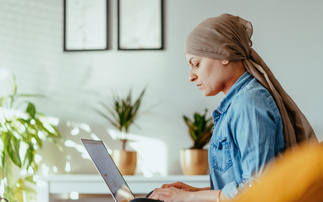In the first in a series of monthly ‘How to’ articles centred on SME wellbeing, Legal & General’s distribution director, Colin Fitzgerald, investigates what the CEO wants from a wellbeing programme.
To succeed in the pandemic economy and beyond, corporate clients need insurers and intermediaries to expand their skill sets to help them design and communicate wellbeing programmes that work harder; for people and for business.
Insurer and intermediary business sustainability rests on our ability to collectively expand our skill sets, focusing on service as well as product, especially when it comes to the design and communication of benefit and wellbeing programmes.
Because, let's face it, technology can do product comparisons, find best prices and even underwrite, but it's no substitution for the consultancy piece.
Good consultancy requires knowing and understanding your audience. Needs will of course vary greatly from one client to the next but industry research, experience and best practice can also help provide useful baseline steers.
Who's responsible for wellbeing?
With that in mind, we this week launched the Legal & General Wellbeing at Work Barometer. This first phase of the study went to 1,000 senior managers and employees in businesses with 10-249 employees. We found that, in these businesses, the CEO/Board is primarily responsible for the implementation of wellbeing strategy, closely followed by individual line managers. That was the case across all sizes of SME.
Surprisingly, HR responsibility featured for just 16% of companies with 10-49 employees; whether that was someone undertaking a dual role we don't know. It then dips in the 50 - 99 employee companies (12%) and increases again in the 100 to 249 category (20%).1
Suffice to say, when it comes to SMEs and new business, there's a primary need to investigate the pressures and pain points from the top down, in order to help get that all important foot in the door.
What's keeping the CEO awake at night?
It's clear that pandemic disruption is far from over. Not only is the end of furlough looming, but Covid business loan repayments are gradually kicking in.
On top of that, the so-called ‘pingdemic' is causing even more disruption, forcing many SMEs to close or restrict service and manufacturing provision due to staff shortages. One in five small business workers are estimated to be self-isolating having been pinged by the NHS Covid-19 tracking app.2
The Government's latest announcement, at the time of writing, will no doubt prove welcome news to some businesses, albeit some of the largest, that will now be allowed to deploy daily Covid testing instead of self-isolation.
Right now, that will only benefit supermarket depots, but there are plans for limited relaxation of self-isolation rules in other key industries, including transport, the emergency services and the energy industry.
Meanwhile, original plans to lift isolation rules on 16 August for double-vaccinated people who are close contacts of a Covid case may not now go ahead, warned the Business Secretary, Kwasi Kwarteng.3
Bearing all of this in mind, it perhaps comes as no surprise then that the top "stressor" for SME employers, according to our research, is navigating Covid-19's impact on the business (39%). This is closely followed by ‘employees' health and wellbeing' (37%).
So, with new clients, an approach that is cognisant of business needs first - protection for business loans, shares, key people, executive income protection and relevant life plans - could well move on to workforce wellbeing later.
What's on employees' minds?
Here's the really tricky bit because it's often the case that the top table think they know what their people need, without even asking them. Perhaps unsurprisingly, this top-down view is often misaligned with the needs of the workforce.
Our research identified a disparity between what employers think are the biggest the stressors for employees and what their people think. 23% of employers cited Covid-19 as a top stressor for their employees.
But the pandemic actually appears way down the list of ‘stressors' in the opinion of employees. Their top stressors were, in order or priority: ‘achieving a work life balance' (20%); ‘my own personal health' (19%); ‘my finances - earning enough money / paying off debts' (19%); ‘my family's health' (19%); workload and getting Covid-19 (both at 17%).
Helping the CEO understand the importance of getting to know their people is vital. It's the secret to a programme that stands a much better chance of being used and valued and that, in turn, translates into a programme that is seen by the board as a key cog in the business machine; supporting the things that matter to business - recruitment, retention, absence and productivity.
Just tell us what to do!
Interestingly, the research revealed one thing that both employers and employees agree on.
When asked what would help improve how the organisation implements employee wellbeing in the workplace, the top answer for both surveys was: ‘A government mandate for all companies to support baseline aspects of wellbeing (i.e. salary protection, early intervention and rehabilitation in the event of injury or illness, including support for mental health)'.
This is both interesting and, at the same time, a little worrying considering that countless surveys have shown leaders are now prioritising wellbeing and communication. It suggests that they are looking for something more.
Maybe it's because employees feel there's an inequality in health and wellbeing at the moment and want to ensure baseline support for all, whatever the size of company, industry, location.
From an employer perspective, it could be to do with the fact that there's simply no framework for wellbeing. This can make it feel like it's complicated to design and communicate wellbeing programmes, whereas a clear mandate simply sets out the rules and regulations.
Employers may also see a mandate as an opportunity to help with costs through the provision of tax incentives. At the moment, we just don't know, but we are going to be investigate this finding further and will report back.
‘Health is everyone's business'
In the meantime, it's really encouraging to see that the government recently published its long-awaited response to the consultation on proposals to reduce ill-health related job loss (Improving Lives: The future of work, health and disability, Nov 2017).4
With a specific focus on SMEs, it looks at how to help more people with a disability or long-term health condition to stay in work and enjoy good work. While the initial consultation failed to acknowledge the value that products like income protection can bring, especially in terms of the embedded value services, this has now been rectified thanks to the great work of GRiD.
Government will now continue to work with the industry to improve awareness amongst employers and the self-employed of the benefits that protection policies can bring. And, at Legal & General, we believe that the sustainable delivery of such policies rests on digital capabilities to ensure the kind of accessibility, choice and cost effectiveness clients need.
This is all about helping support diversity and inclusion goals, reducing absence and health and wellbeing inequalities, and helping build a happier, healthier and more productive workforce. Now that must be music to the ears of any CEO.
1 Wellbeing at Work Barometer - Legal & General's research was conducted by Opinium among 1,055 employees (middle managers and below) in businesses with 10-249 employees and 1,011 senior managers in business with 10-249 employees, between 13-20 May 2021.
2 Smallbusiness.co.uk, 20% of business workers self-isolating due to Covid, 15 July 2021, https://smallbusiness.co.uk/20-of-business-staff-self-isolating-due-to-covid-2555494/
3 Independent, Isolation rules for double vaccinated may not be lifted on 16 August, minister warns, 22 July https://www.independent.co.uk/news/uk/politics/double-vaccine-isolation-rules-august-b1888420.html
4 Department for Work & Pensions and Department of Health & Social Care, Government response: Health is everyone's business, 21 July 2021 https://www.gov.uk/government/consultations/health-is-everyones-business-proposals-to-reduce-ill-health-related-job-loss/outcome/government-response-health-is-everyones-business










